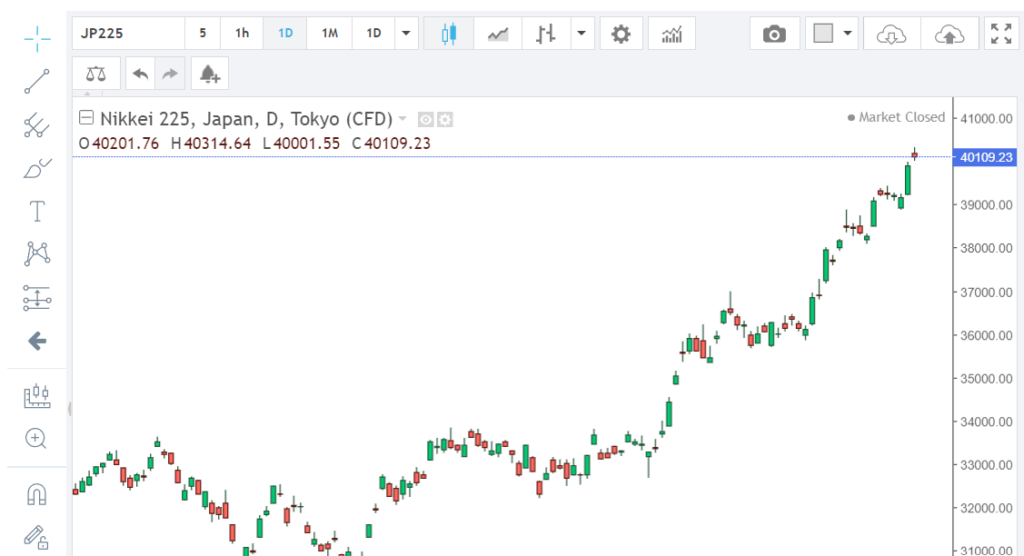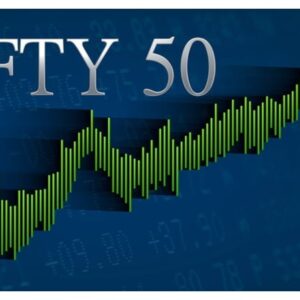**Analysis of Asian Stock Markets on 5th March**

On the 5th of March, 2024, the Asian stock markets witnessed a mixed performance across major indices, including the Shanghai Composite, Nikkei 225, Hang Seng Index, and KOSPI. Each index showed distinct trends and movements, reflecting various economic factors and market sentiments prevailing at the time.
**Shanghai Composite:**
The Shanghai Composite, representing China’s stock market, exhibited a slight downturn on the 5th of March. The index experienced marginal losses, primarily influenced by concerns surrounding the ongoing trade tensions between China and the United States. Investors remained cautious amidst uncertainties regarding the progress of trade negotiations and the potential impact on China’s economy. Additionally, domestic factors such as inflationary pressures and regulatory changes also contributed to the subdued performance of the Shanghai Composite. However, the Chinese government’s efforts to stimulate economic growth through targeted policies and infrastructure investments provided some support to the market, preventing more significant declines.
**Nikkei 225:**
In contrast to the Shanghai Composite, Japan’s Nikkei 225 displayed resilience on the 5th of March, recording moderate gains. The index benefited from positive economic data, including robust export figures and improving consumer sentiment. Additionally, expectations of continued monetary stimulus from the Bank of Japan (BOJ) bolstered investor confidence, driving inflows into Japanese equities. Furthermore, the yen’s depreciation against the US dollar provided a tailwind for export-oriented companies, further supporting the Nikkei’s upward trajectory. Overall, the Nikkei 225’s performance reflected optimism regarding Japan’s economic recovery and the efficacy of policy measures in stimulating growth.
**Hang Seng Index:**
Hong Kong’s Hang Seng Index witnessed a relatively flat performance on the 5th of March, with minor fluctuations throughout the trading session. The index faced headwinds from lingering concerns over the city’s political stability and regulatory uncertainties, particularly in the technology and financial sectors. However, gains in select heavyweight stocks, supported by positive corporate earnings and expectations of continued mainland capital inflows, helped offset downward pressure. Moreover, optimism surrounding the prospects of cross-border collaborations, including the Shanghai-Hong Kong Stock Connect and the Greater Bay Area initiative, provided some support to investor sentiment. Overall, the Hang Seng Index’s performance underscored the delicate balance between domestic challenges and external opportunities influencing Hong Kong’s equity market.
**KOSPI:**
South Korea’s KOSPI index displayed a mixed performance on the 5th of March, closing marginally higher despite intraday volatility. The index faced pressure from concerns over global supply chain disruptions, particularly in the semiconductor industry, which represents a significant portion of South Korea’s exports. However, gains in pharmaceutical and biotechnology stocks, driven by positive developments in the healthcare sector, helped cushion the KOSPI’s losses. Furthermore, expectations of robust corporate earnings and continued government support for key industries provided underlying support to the market. Nonetheless, lingering uncertainties surrounding geopolitical tensions on the Korean peninsula and the broader region tempered investor enthusiasm. Overall, the KOSPI’s performance reflected a complex interplay of domestic and external factors shaping South Korea’s equity market landscape.
**Conclusion:**
In conclusion, the Asian stock markets exhibited divergent trends on the 5th of March, reflecting a range of economic, political, and regulatory factors. While the Shanghai Composite experienced modest declines amid trade tensions and domestic uncertainties, the Nikkei 225 demonstrated resilience supported by positive economic data and monetary policy expectations. The Hang Seng Index remained relatively stable, navigating through domestic challenges and external opportunities, while the KOSPI displayed a mixed performance influenced by sector-specific dynamics and geopolitical concerns. Looking ahead, market participants will continue to monitor developments closely, including trade negotiations, policy decisions, and geopolitical events, which are likely to impact the trajectory of Asian stock markets in the near term.









